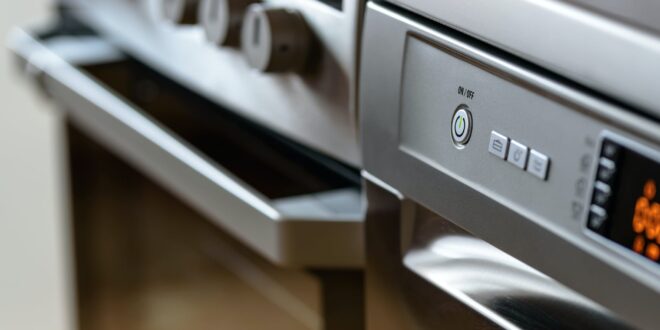If you have a dishwasher, you definitely know the value it adds to your kitchen. Therefore, it’s very easy to notice when your dishwasher develops a problem. Typically, a dishwasher has an average lifespan of 7 – 12 years. However, dishwashers tend to break down before attaining this time period.
Interestingly, dishwashers break down because of some common issues, and some of these issues can be solved without the need for professional assistance. In this post, we’ve highlighted some of these issues, and how you can solve them.
Dishes not cleaning well
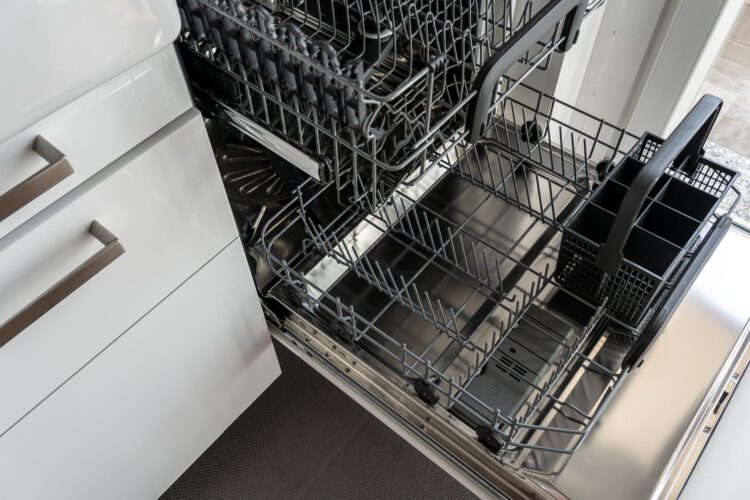
This is one of the most common problems experienced by people with dishwashers. If you realize that your dishwasher is not cleaning the dishes effectively, don’t fret at all. Most people with dishwashers agree that this is an issue that you can repair without the need for professional assistance.
First, you should run a wash cycle with a dishwasher cleaner. Make sure that there are no dishes in the cleaner when doing this exercise. This is very important as it assists in flushing the grease or grime in the dishwasher.
Also, inspect the dishwasher’s strain screen, door gasket, and sprayer arms. Check to see if there’s any grease or food waste present—if so, remove it. At times, your dishwasher might not be cleaning your kitchenware effectively because of this. If this issue persists, there is a problem that the dishwasher has low-pressure arms, or other issues affecting the cleaning power of the appliance.
Dishwasher not starting
Just like all other appliances in your home, your dishwasher needs a power supply for it to run. If you notice that your dishwasher is not starting, there is a possibility that you’ve not plugged it well. Also, damaged wiring can be the cause of the machine not starting.
Another common problem that makes dishwashers not to start is a defective door latch or the switch at the door latch. A dishwasher cannot start until you’ve closed the door properly. That’s why any problem with the door will make the wash cycle not to start. If you notice that there is no problem with the power connection or the dishwasher’s door, then there’s a serious problem with the electrical system of the unit.
The machine isn’t filling or will not stop filling
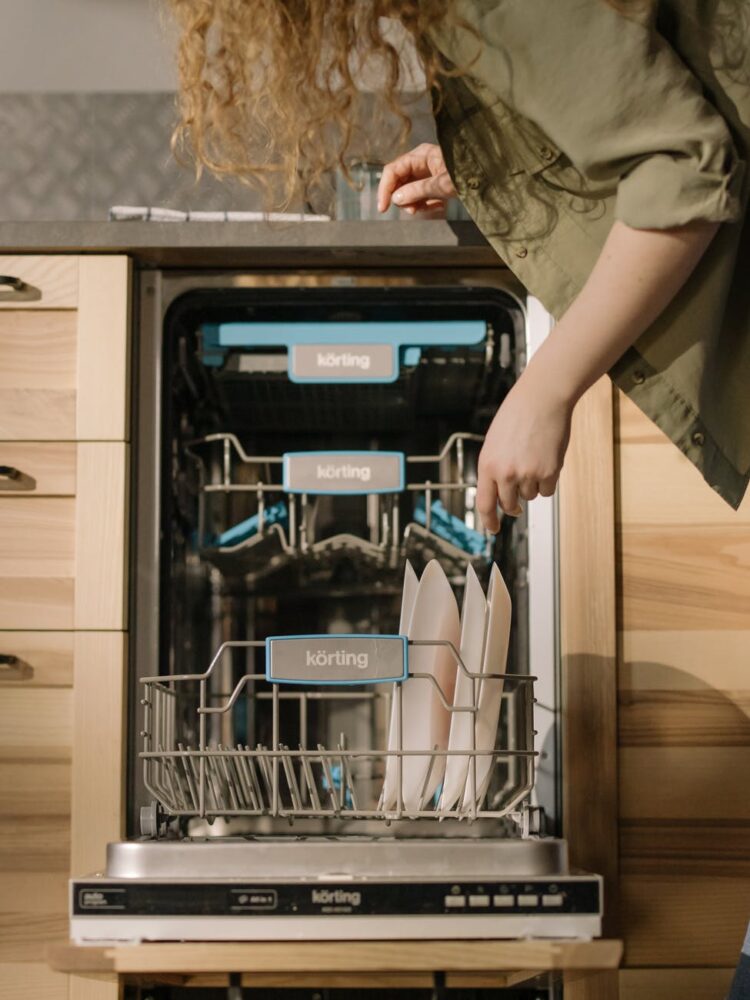
For your dishwasher to operate at the desired efficiency, it must have a steady supply of water. However, it’s not strange to see a dishwasher that doesn’t fill with water or one that won’t stop filling. Mostly, a faulty water inlet valve causes this issue. If the water inlet valve is malfunctioning, it will not supply the dishwasher with water as required. Also, a stuck open inlet valve won’t stop filling your dishwasher—even after it has the recommended amount of water.
Moreover, issues with the machine’s float or the float switch can lead to this issue. These are important components that inform you if the appliance has the recommended amount of water. Waste or debris in the dishwasher can make the components to malfunction.
The dishwasher is noisy
Almost every dishwasher makes some sort of noise—not unless it’s an ultra-quiet machine. However, if you notice that your appliance is making some funny noises, there might be an issue with the machine.
At times, a faulty pump can be the root cause of this problem. Also, the bearing ring or wash arm seal may be worn out, and it needs replacement. Moreover, if the spray arms are not turning well, then they might be coming into contact with the dishes. If that’s the case, let an expert from jacksonvilleappliancerepair.services replace them.
The machine is not draining
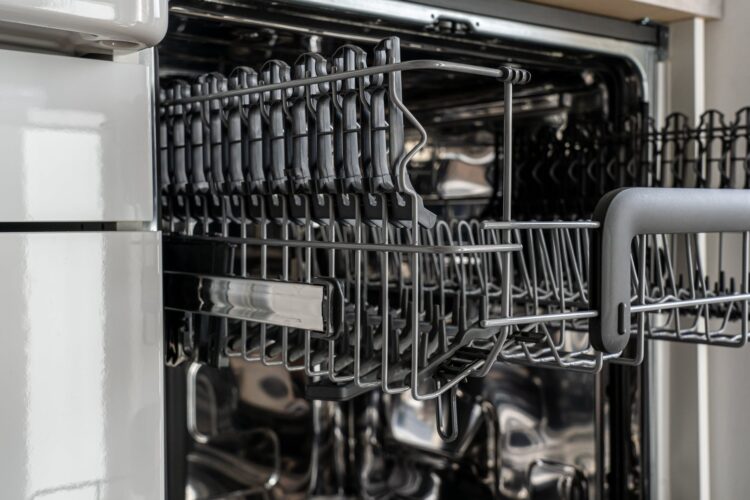
If your dishwasher isn’t draining, it risks flooding, thus causing serious problems in your kitchen. Mostly, this issue is caused by the check valve, which is located in the machine’s drain sump. Check to see if the valve is working properly, and if not, consider replacing it. Also, you might need to replace the entire drain sump.
No one wants their dishwasher to flood. That’s why a dishwasher that’s not draining is a big problem. If you are not sure what the problem is, consider seeking professional assistance.
The appliance is leaking
This is one of the most frightening dishwasher issues. In fact, a leaking dishwasher can cause significant damages to your home. When you notice that your dishwasher is leaking, first inspect the drainage hose to see if it’s cracked, or damaged. Also, don’t forget to check the gaskets of the dishwasher’s heating element.
A faulty pump and pump seal can be another factor that makes your dishwasher to leak. If that’s the case, then consider replacing the seal. Also, you can replace the pump if replacing the seal doesn’t solve the problem.
However, you should first inspect the dishwasher’s door gasket before replacing the seal or pump. If the door gasket has weakened, or it seems like it isn’t sealing well, replace it first, and then check to see if the problem is solved.
The dishwasher has a foul smell
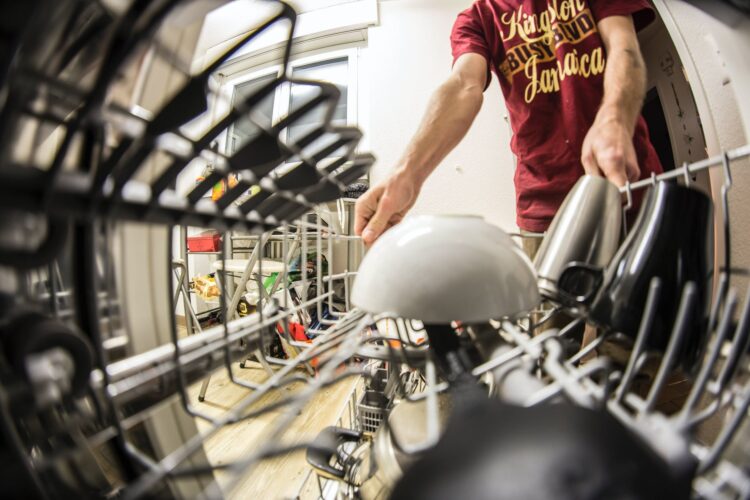
If you notice that your dishwasher has some foul smell after finishing a wash cycle, check to see if there’s any trapped grease or food in the machine. Mostly, you’ll find this at the dishwasher’s strainer screen, and also in the nozzles of the sprayer arms. Moreover, don’t forget to check at the bottom edge of the machine’s door
Make sure that you’ve cleaned these areas, and remove any grease and debris. After that, run a full wash cycle without any dishes. You can also consider adding a disinfectant or dishwasher cleaner. Always make sure that your rinse your dishes off large food particles and grease before putting then in the dishwasher. This will make sure that no grease or food particles get stuck in your dishwasher again.
The detergent is not applied
This is a common issue, especially with dishwashers where pod or powder detergents are pit in a small and closed compartment before washing. First, you need to inspect this compartment if you notice this issue. There is a possibility that it’s encrusted or jammed. This can prevent it from opening as it’s supposed to once you turn on the washer.
Besides, you should also check how you’ve placed the plates inside the machine. At times, placing the plates improperly can block the compartment. This, in turn, can prevent the compartment from opening when you close the door.
Film or spots on your utensils
A white film, particularly in your glassware is as a result of a high concentration of minerals like magnesium and calcium. If you live in an area with hard water, you’ll realize that you have a problem with whit film on your glasses, dishes, as well as the inside tub of your dishwasher.
There are some scenarios where the soap and rinse agents are not softening the water well in areas with hard water to get the wanted cleaning results. If that’s the case, consider using dishwater detergent boosters, as this will improve the cleaning results.
Dishes are not drying well
The heating element in your dishwasher is the probable culprit of this issue. You can check the heating element with a multi-meter to make sure that it’s functioning normally. Moreover, don’t forget to inspect the high-limit thermostat using a multi-meter to see if it’s functioning
 Hi Boox Popular Magazine 2024
Hi Boox Popular Magazine 2024
